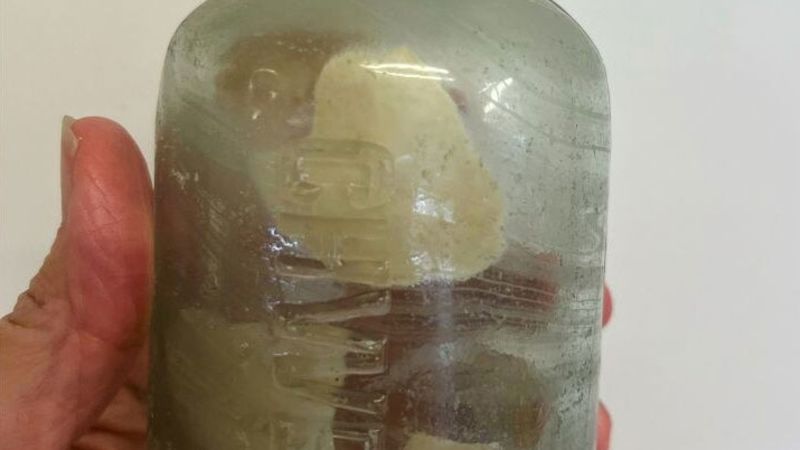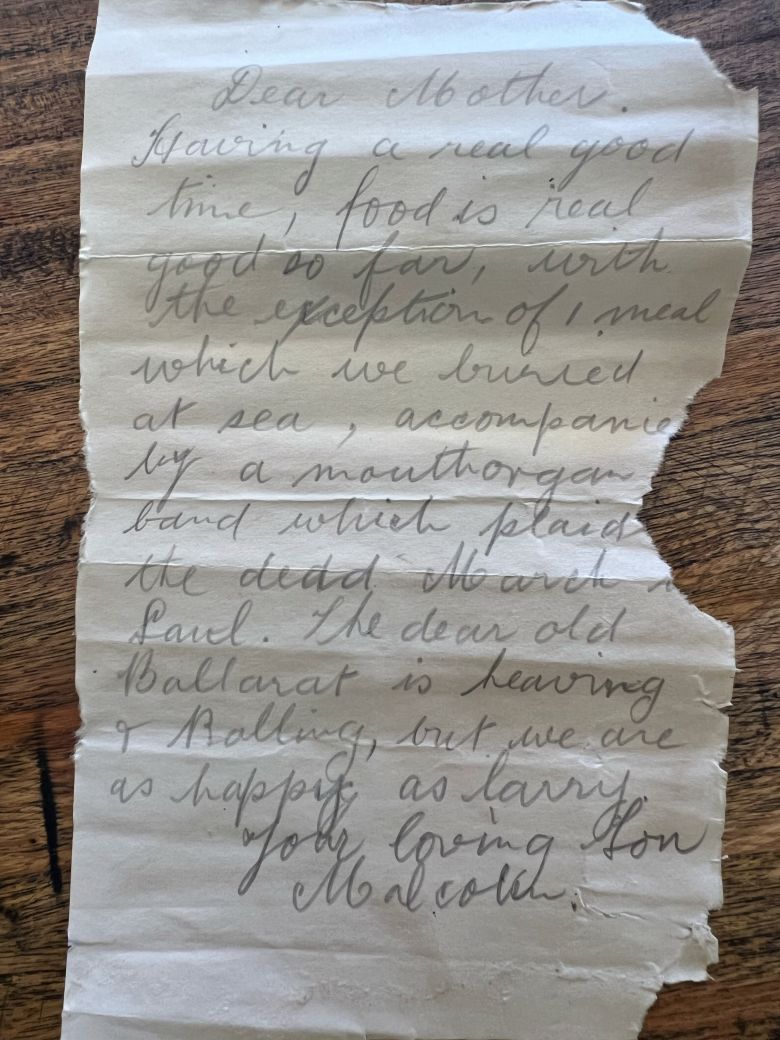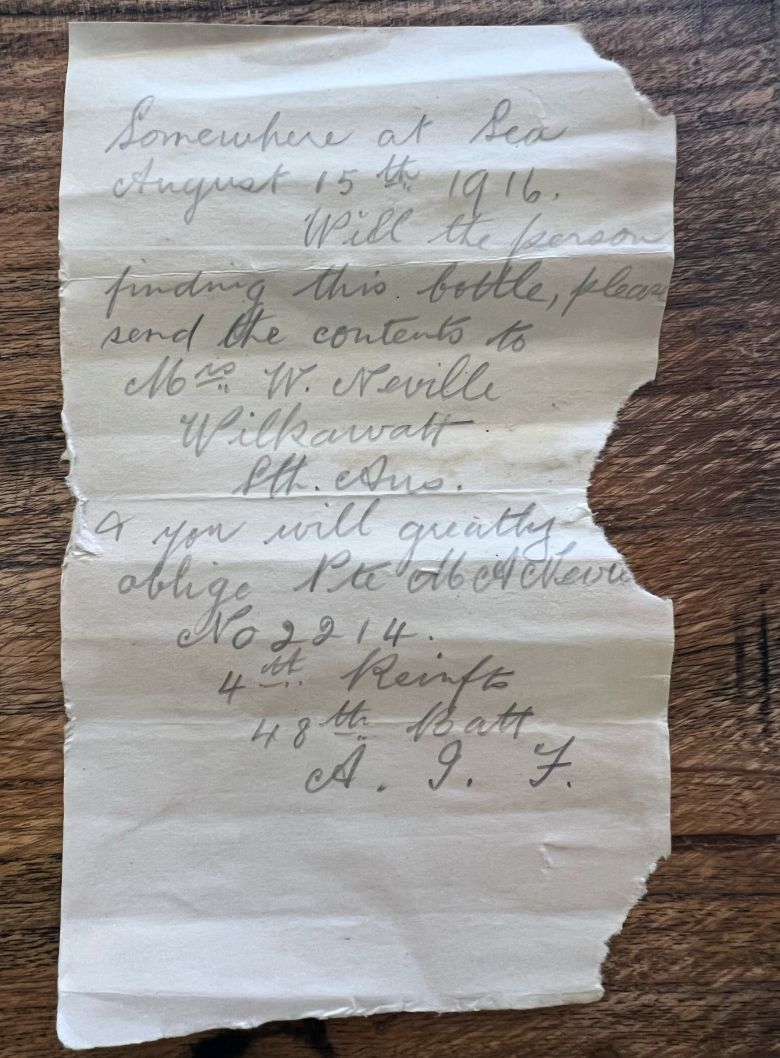melbourne, australia
AP
—
A message in a bottle written by two Australian soldiers just days after embarking on a voyage to the French battlefields during World War I has been discovered on Australian shores more than a hundred years later.
Deb Brown revealed that the Brown family discovered the Schweppes brand bottle just above the water’s surface on October 9 at Wharton Beach near Esperance, Western Australia.
Husband Peter and daughter Felicity made the discovery during one of their regular family quad bike expeditions to remove trash from the beach.
“We clean the beach often so we don’t miss any trash, so this little bottle was sitting there waiting to be picked up,” Deb Brown said.
Inside the clear, thick glass was a cheerful letter written in pencil by Private Malcolm Neville, 27, and Private William Hurley, 37, dated August 15, 1916.
Their troop carrier HMAT A70 Ballarat set sail east from South Australia’s capital Adelaide on 12 August that year, its soldiers making the long journey to the other side of the world to reinforce the 48th Australian Infantry Battalion on the Western Front in Europe.
Neville was killed in action a year later. Although twice wounded, Hurley survived the war and died of cancer in Adelaide in 1934. According to his family, Hurley died after being gassed by German troops in the trenches.
Mr Neville asked the person who found the bottle to deliver the letter to his mother, Robertina Neville, in Wilkawat, now a virtual ghost town in South Australia. Hurley’s mother had died by 1916, and he was glad the finder had left a note.
Hurley wrote, “May the discoverer be as well as we are now.”
Neville wrote to his mother: “We are having a really good time. The food has been really good so far, except for the one meal we buried in the ocean.”
The ship was “rocking and rocking, but we are as happy as Larry,” Neville wrote, using a now-defunct Australian colloquialism to mean very happy.
Neville writes that he and his companions are “somewhere out at sea.” Hurley wrote that they were “somewhere in the Bay”, referring to the Great Australian Bight. It is a vast open bay that begins east of Adelaide and stretches all the way to Esperance in the west.
Deb Brown suspects the bottles didn’t make it far. It likely spent more than a century on land, buried in sand dunes. Huge swells along Wharton Beach in recent months may have caused widespread erosion and displacement of the dunes.
The paper was wet, but the text was legible. That allowed Deb Brown to inform the relatives of both soldiers of the discovery.
She said the bottle was “in good condition. There are no barnacles or anything like that. If the bottle had been in the ocean or had been exposed for that long, I think the paper would have disintegrated in the sun. You wouldn’t be able to read it.”
Mr Hurley’s granddaughter Anne Turner said the family was “absolutely surprised” by the discovery.
“It’s unbelievable. It feels like a miracle and it feels like my grandfather reached out from the grave,” Turner told the Australian Broadcasting Corporation.
Mr Neville’s great-nephew Harvey Neville said the “incredible” discovery had brought the family together.
Harvey Neville said: “He seemed very happy to be going to war. It’s really sad what happened. It’s so sad that he lost his life.”
“Wow, what a great guy he was,” the great-nephew proudly added.



